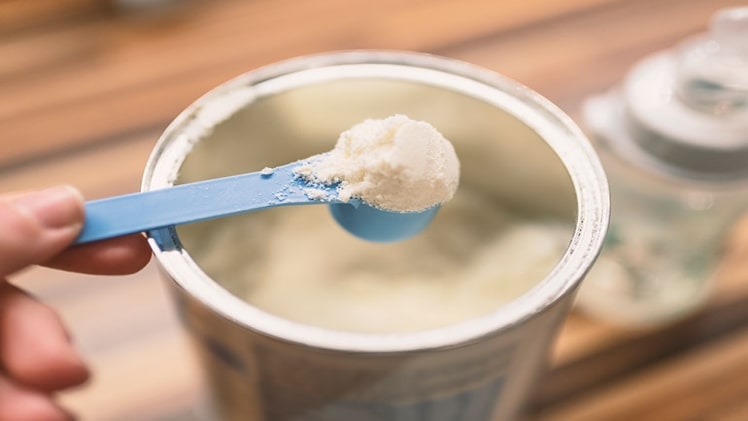A few factors contribute to the problem. Supply chain problems, Product recalls, Retailer restrictions, and Economic pressures are just a few of the reasons why baby formula may be in short supply. But how can these factors affect the availability of baby formula? Let’s explore some of the most common factors and solutions to the current shortage. And hopefully, this article will help you understand how the crisis affects you.
Supply chain issues
Recent shortages of baby formula have prompted many retailers to pull out of stock, but how do they do it? In part, supply chain problems can be traced to the shortage of one key ingredient, cow’s milk. The rash of baby formula recalls coincided with an epidemic in which demand rose dramatically. Shortages also resulted from a reduction in the number of truckloads and warehouses available for the product.
The baby formula industry is highly concentrated, with just a few large companies manufacturing the vast majority of the product. This makes a shortage a real problem – especially when the company behind the formula goes out of business. In some cases, out-of-stock percentages reached 74% in U.S. retailers, which is unacceptable. As a result, infants of color and those with low incomes may be disproportionately affected.
Import regulations
The Food and Drug Administration recently announced new guidance on the importation of baby formula you can get it at https://organicsbestshop.com/ this site The FDA will prioritize foreign formula manufacturers who have a large volume of products, can get them onto store shelves quickly, and can meet agency standards.
Product recall
After the recent product recall, a U.S. Congresswoman called for the Food and Drug Administration to investigate the company that makes baby formula. A whistleblower has sent a 34-page report to the FDA alleging that the plant used unsafe conditions and had a shortage of formula. Earlier this year, the company estimated it would take six to eight weeks to restock its shelves with safe formula.
Retailer restrictions
As the number of infants using formula increases, some major retailers have put limits on the number of bottles shoppers can purchase. Walgreens, Target, and CVS all have limits on how many bottles a customer can buy in one transaction. Other retailers like Kroger have a limit of four bottles per transaction. Several manufacturers have also announced that they are increasing their production of infant formula. But is this the best way to ensure that all babies are getting the essential nutrients they need?
Since April 1st, out-of-stock levels for baby formula have skyrocketed, outpacing other categories like diapers. Some cities and states have even higher shortage levels than other products. In April alone, six U.S. cities had supply shortages that were more than 50% higher than the national average. The most affected states include Texas, Missouri, and Tennessee. Those are just a few of the many states where there are retail restrictions for baby formula.
Economic pressures
The shortage of baby formula has become so severe that Walgreens and CVS have begun limiting the number of containers a customer can purchase. According to Disassembly, a data analytics firm, 40% of large retail stores are out of stock, up from 31% in mid-April. According to the firm, infant formula is particularly vulnerable to disruptions because only a handful of companies account for nearly all U.S. supplies. Several factors are at play here. A virus outbreak has caused some factories to shut down, while a governmental lockdown has disrupted transportation.
Lack of access to affordable infant formula is a major problem, but it also has alarming implications for food policy and hunger. While the U.S. food system is underfunded and monopolized by a few companies, it depends on systems that are fragile and prone to disruption. The resulting inequity is detrimental to the health of children and infants. But the shortage of baby formula is not the end of the world. There are many ways to solve this problem.
Pandemic
The latest bipartisan poll indicates that almost half of voters blame the Baby Formula shortage on supply chain problems. The survey also shows a divide in blame across the political spectrum, with partisan voters blaming the Food and Drug Administration, the manufacturer Abbott Nutrition, and policymakers. While the shortage is affecting millions of babies, it has been disproportionately affecting low-income families. A shortage of baby formula could lead to health problems with brain development. Meanwhile, parents may have been watering down baby formula or mixing it with vitamins, which is not sterile.
As a result of the pandemic, the supply chain has become severely strained, affecting many goods. In early 2022, a major baby formula production facility shut down because of harmful bacteria. The factory operated by Abbott Nutrition, the largest manufacturer in the United States, had been forced to close its Michigan-based factory, putting millions of babies’ lives at risk. While the company is restoring production there, it may be months before the full supply is back up. While the supply is expected to increase again in the coming weeks, many parents are using alternative methods of supplementation.
A recent social media post falsely claimed that the U.S. cannot import baby formula from foreign manufacturers. While this is true, the temporary change could mean moreformulasa on U.S. shelves in a few weeks. The new guidance also states that all foreign formulas must meet safety and nutritional standards.
Conclusion
As of today, only FDA-registered companies can import baby formula to the United States. However, these companies are still not allowed to sell or distribute the imported formula in the United States without FDA approval. Currently, American mothers are paying more for overseas brands made with goat’s milk or pasture-raised cow’s milk. Import regulations have been tightened up recently, and the Biden Administration hopes that the new rules will make the process easier for manufacturers.

